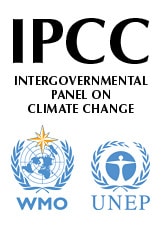Regular readers know I’m pretty critical of the United Nations’ Intergovernmental Panel on Climate Change–particularly when it comes to how this expert body communicates climate science. Basically, my view is that any organization that holds a key climate meeting in Copenhagen in winter is pretty clueless about the politics and public perception of this issue. [See Correction Below.] But even worse is that IPCC has shown far too little investment in communication or public outreach (although lately that is beginning to change), and has handled crisis communication moments—like the Himalayan glaciers flap—terribly.
Now, before I get too many ticked off emails: I know the IPCC is the leading expert source for climate science assessments, and deservedly so. I know that the scientists who volunteer to work on its reports do a heroic job. I recognize and commend all of this. But it simply isn’t enough in this day and age—and it is in the communications sphere where the IPCC’s scientific excellence simply has not been matched.
A new paper in the scientific literature that studies major scientific assessment reports, and their public impact, supports this view. The study in Climatic Change, by Brenda Ekwurzel and Peter Frumhoff of the Union of Concerned Scientists and James McCarthy of Harvard, shows that IPCC-related scandals have received a dramatic level of press attention, coming in second only to IPCC reports themselves in media attention. Furthermore, the paper also suggests that these reports are written in technical language that is likely misinterpreted by public audiences.
The new study shows that when IPCC releases one of its rare and treasured assessment reports, it does get more coverage than other assessment reports released by, say, the National Academy of Sciences or the U.S. government. That’s very appropriate: The IPCC is, after all, the gold standard and its reports are long awaited and endlessly cited.
But consider: The IPCC related “controversy” of late 2009 and early 2010 drew about 1/3 as much total coverage as the 2007 IPCC release of its Fourth Assessment Report, and more total coverage than the release of key assessment reports by the U.S. government and National Academy of Sciences. And I would argue that even this comparison is misleading. Anyone observing politics in this country would have to concede that the IPCC “scandals” have been far more influential than the IPCC’s science, at least over the past half decade.
The new study also looks at how the IPCC communicates its findings: i.e., in technical language that’s likely to be misunderstood. For instance:
When presented with excerpted sentences from the AR4, survey respondents consistently underestimated the certainty implied by extremes, such as “very likely” (>90% probability, according to the guidelines) and “very unlikely” (<10%). Twenty-five per cent of respondents, for example, interpreted “very likely,” as in “average Northern Hemisphere temperatures during the second half of the 20th century were very likely higher than during any other 50-year period in the last 500 years” (IPCC 2007), as meaning less than 70% probability…Thus, IPCC terminology intended to succinctly represent authors’ consensus on the range of probabilities associated with key findings may itself be a significant barrier to understanding for public and policymaker audiences.
The IPCC’s “likely/very likely” language represents a group of scientists trying to use ordinary language to quantify uncertainty. The goal has always been to be as accurate as possible—but how these word choices strike people has been a far less prominent consideration. In other words, IPCC has been communicating for scientists, rather than for audiences.
A new report shows that from 2007 to 2011, the U.S. public showed a 14 % decline in its concern about global warming. That’s a period that was kicked off by an IPCC report announcing that “most” of the global warming we’ve seen is “very likely” caused by human activities.
Which pretty much says it all.
Correction: The United Nations Framework Convention on Climate Change, not the United Nations Intergovernmental Panel on Climate Change, organized the Copenhagen summit. My apology for this mistake.
Subscribe to our newsletter
Stay up to date with DeSmog news and alerts






